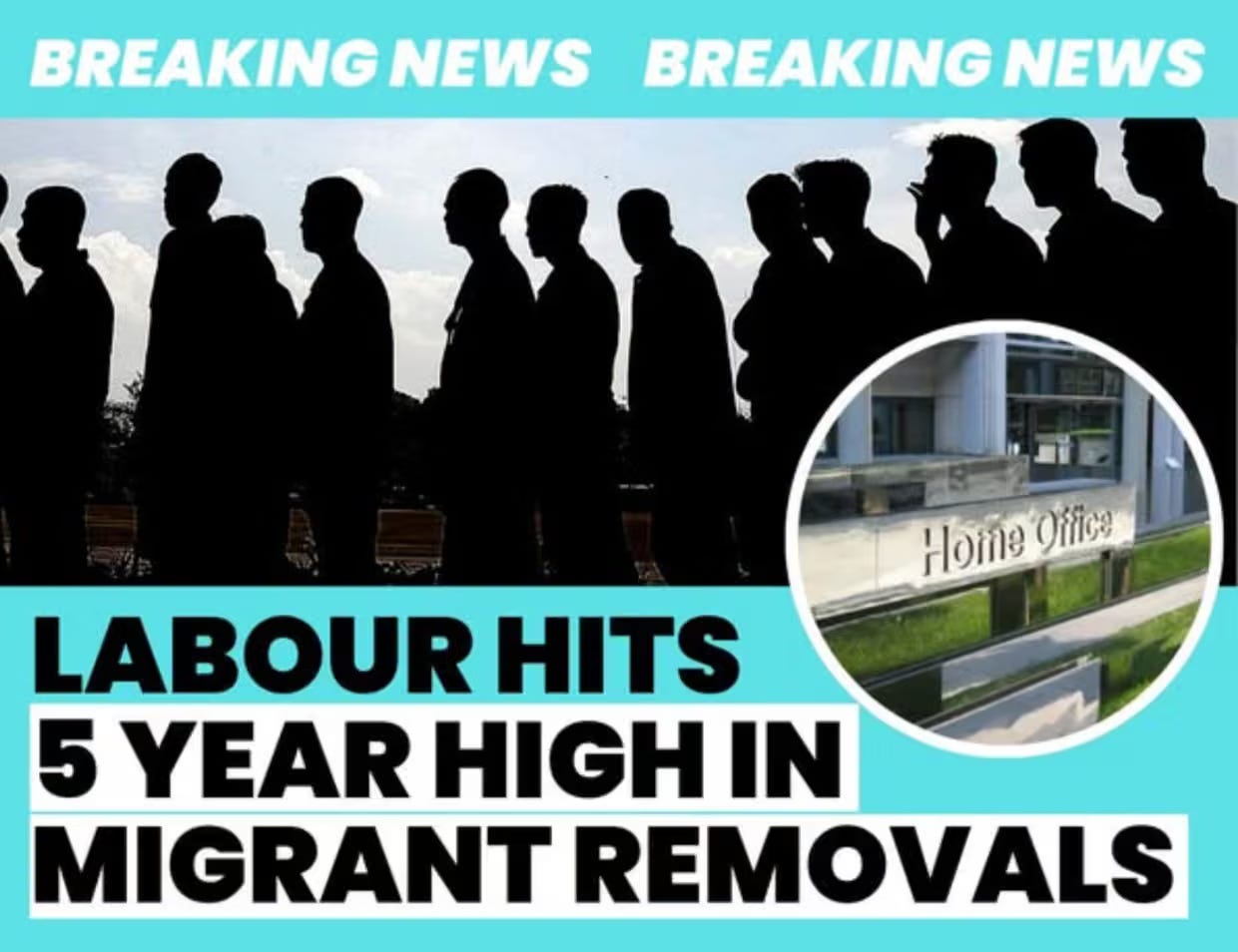Why You Didn't Necessarily Vote Better
On the Labour party and its track record on immigration.
At an event for Determination recently, an audience member posed the dreaded question. The question I always worry I won’t be able to answer well enough. ‘What can we do?’ she asked, opening out her hands.
Was it a fair question? I’d spent forty minutes complaining about how cruel the Home Office was and how that cruelty aimed to crush the souls of people subject to the immigration system; it made sense that she was roused to action. But I also wondered if, like most people who show up to author events and treat fiction writers like public intellectuals and policy makers, she wanted an easy solution to this mess and assumed I had one.
I tried to answer her as best as I could. I listed all the ways we could help immigrants and refugees: by donating our time and money to the charities that try to make their lives more bearable; joining anti-raid groups and putting our bodies between immigration officers and the people they’re trying to detain; having conversations with the people we know about the value of cultivating a kind and generous society – for ourselves as much as for others.
Then I changed tack and told her that we, the British electorate, also needed to vote better. To which she replied with exasperation, ‘But I thought I did vote better!’
I smiled, wondering how many people had voted for Labour thinking they were supporting the ‘nice’ and not the ‘nasty’ party. How many people had thought that a Labour government would return us to the untroubling halcyon days when our immigration policy was supposedly generous and humane? Maybe they didn’t think about immigration at all, but were worried about some other issue, on which Labour offered a mild improvement on the status quo.
I told the audience member the truth, that Labour never promised to be fairer or kinder on immigration. They only promised to be more efficient. They would detain people in higher numbers, refuse their cases quicker, deport them faster. In other words, they would do hostile immigration policy better than the Tories. Asylum activists had warned us about this all along.
In the last twelve months, that efficiency has been plain for us all to see. The number of people being detained is up 12%, removals are up by 18%, immigration raids and arrests have increased by 38%. Labour is pressing ahead with plans to reopen two detention centres and expand detention powers, even though we know that detention absolutely devastates a person’s mental health. And, as Labour attempts to clear the backlog of undecided asylum claims deliberately neglected by the Tory government, by any means possible, at the immigration law firm where I work, we’re overwhelmed with refusals. Most of the decisions are so poor, we have no choice but to appeal. In the process of clearing one backlog, they’re only creating another one in the Tribunal.
It's the same elsewhere. Labour might have scrapped the ‘Rwanda plan’, but it didn’t abandon the underlying logic. This government (like the last one) is still obsessed with stopping people from coming here on small boats. It talks big about ‘smashing’ the smuggling gangs that enable this, has committed £150 million to militarising our border, but this will never work. Whatever you do, you can’t stop the gangs from adapting to border controls, and you can’t stop people from taking to the sea for a better life without providing them with safer alternatives.
Now we have this ‘One In, One Out’ deal with France, where Labour promises to return people who arrive on small boats in exchange for accepting those who don’t. If it sounds like a gimmick, that’s because it is. It’s another attempt at deterring people from trying to cross the channel. But it refuses to engage with the fundamental facts: most of the people arriving on small boats are genuine asylum-seekers. They have the right to apply for protection wherever they want; they resort to small boats because they have no other way of getting in. The vast majority are Afghans, Syrians, Vietnamese, Iranians and Eritreans. Some have family or other links to Britain. Around 70% are granted refugee protection.
So, no, we didn’t vote in a better government with Labour. They’re intent on churning out the same dehumanising rhetoric, the same tired old stunts, pandering to the noisiest in Britain, who use the dysfunction in the Home Office to scapegoat migrants and stoke public anger. This time, a year ago, racists were attacking asylum hotels, trying to burn them down with people still trapped inside. At my office, we were working with our shutters down, our front door locked, vetting clients before we let them in, absolutely terrified. A year later, with racist riots in Northern Ireland and attacks on asylum hotels in Essex and Norfolk just a few days ago, nothing seems to have changed. We’re in a very bad place. And until someone stops the gimmicks for a minute and starts making a positive case for immigration, and thinks about developing the kind of policies that could fix the very real problems in the immigration system, it’s only going to get worse.
In Other (Cheerier) Business:
· Recipe of the Week: Sesame Spinach. Haven’t cooked very much since recently, but in London, I ate the softest, gentlest spinach dish, blanched and dressed with Chinese sesame paste, sesame oil and toasted sesame seeds, still warm, that I just had to recreate when I got home.
· Song of the Week: Open Season by Josef Salvat. An oldie but goodie. Perfect for a languid summer. Love his voice.
· What I’m Reading: The Scapegoat by Daphne du Maurier. My first Daphne and I was blown away, it’s so beautifully written and psychologically rich. But also, I interviewed Kasim Ali about his second novel Who Will Remain, which has stayed with me for quite some time. Read our conversation about Alum Rock, Pakistani culture and masculinity here.
· What I’m Watching: Caché/Hidden by Michael Haneke. Does it matter if you don’t ‘get’ a movie when you first watch it? Caché is a psychological thriller. A couple are increasingly freaked out by a series of anonymous video tapes which depict their house under surveillance. But the whole story is an allegory for France and its history, and I’ve thought about it ever since.
· Next time: On dealing with image issues as an author.



